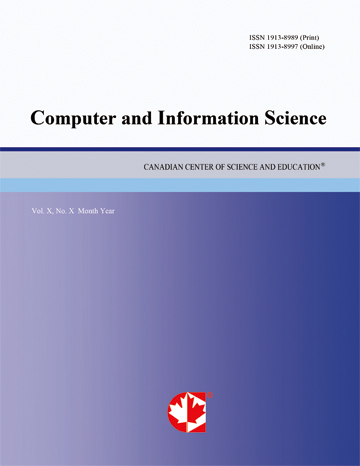An Empirical Investigation on the Adoption of e-Government in Developing Countries: The Case of Jordan
- Ahmad Rabaai
Abstract
While e-Government has the potential to improve public administration effectiveness as well as efficiency by increasing convenience, performance and accessibility of different government services to citizens, the success of these initiatives is dependent not only on government support, but also on citizens’ willingness to accept and adopt those e-government services. Although there is a great body of literature that discuss e-Government in developed countries, e-government in developing countries, in general, and Arab countries, in particular, has not received equal attention. The objective of this study is to determine the factors that influence the adoption of e-government services in a developing country, namely Jordan. An extended version of Technology Acceptance Model (TAM) is utilized as the theoretical base of this study. Overall, the study proposes that citizens’ perceptions about e-Government services influence their attitude towards adopting e-government initiatives. A survey collected data from 853 online users of Jordan’s e-government services. Using partial least squares (PLS) of structural equation modeling (SEM) analysis technique, the results show that all the four factors, namely: Perceived Credibility, Perceived Usefulness, Perceived Ease of Use and Computer Self Efficacy have significant effect on the adoption of e-government services in Jordan. Moreover, the study findings show that Perceived Ease of Use as the most important factor in predicting Jordanian citizens’ adoption of e-government services. The research limitations, implications for research and practice are discussed.- Full Text:
 PDF
PDF
- DOI:10.5539/cis.v8n3p83
Journal Metrics
WJCI (2022): 0.636
Impact Factor 2022 (by WJCI): 0.419
h-index (January 2024): 43
i10-index (January 2024): 193
h5-index (January 2024): N/A
h5-median(January 2024): N/A
( The data was calculated based on Google Scholar Citations. Click Here to Learn More. )
Index
- BASE (Bielefeld Academic Search Engine)
- CNKI Scholar
- CrossRef
- DBLP (2008-2019)
- EuroPub Database
- Excellence in Research for Australia (ERA)
- Genamics JournalSeek
- GETIT@YALE (Yale University Library)
- Google Scholar
- Harvard Library
- Infotrieve
- Mendeley
- Open policy finder
- ResearchGate
- Scilit
- The Keepers Registry
- UCR Library
- WJCI Report
- WorldCat
Contact
- Chris LeeEditorial Assistant
- cis@ccsenet.org
